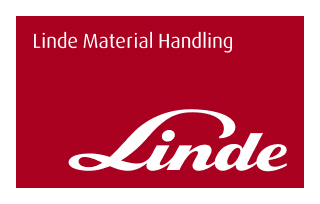Forklifts play a vital role in the smooth operation of logistics, warehousing, and industrial environments across Australia. Whether you're stacking pallets in a warehouse or moving heavy loads, choosing the right forklift and the right power source is essential.
Your choice of energy doesn’t just power your equipment. It impacts productivity, running costs, emissions, and long-term performance. From sustainability goals to space constraints, the right decision can make a real difference to your bottom line.
Linde Material Handling offers a comprehensive range of forklifts tailored to every application, from compact electric models for indoor use to rugged diesel forklifts for tough outdoor conditions.
Overview of Common Forklift Power Sources
When selecting a forklift, understanding the power source is a key step. Each source offers different advantages depending on your environment, workload, and operational priorities.
Lead-Acid Battery Electric Forklifts
- Low emissions and low noise: These forklifts are ideal for enclosed environments like warehouses, food storage facilities, and pharmaceutical operations.
- Lower maintenance: Fewer moving parts and no need for fuel refills make lead-acid battery electric forklifts easier to maintain.
- Slower charging: Traditional lead-acid batteries can take 6-8 hours to charge and require additional cooling time.
- Available through Linde: Linde offers robust lead-acid battery electric forklifts optimised for warehouse performance.
Lithium-ION Battery Forklifts
- High efficiency and fast charging: Lithium-ION forklifts can recharge in as little as 1-2 hours, enabling opportunity charging during breaks. This makes them ideal for multi-shift operations and helps keep downtime to a minimum.
- Zero emissions: Lithium-ION forklifts produces zero emissions at their point of operation, ideal for operations in enclosed areas.
- Long lifespan: Batteries can last up to 3,000 charge cycles or more, offering better long-term value.
-
Higher upfront cost: While they require a bigger investment upfront, lower maintenance and energy savings make them cost-effective over time.
Diesel Forklifts
- Powerful and built for tough jobs: These forklifts thrive in outdoor settings, construction sites, and ports.
-
More emissions and noise: Less suited for enclosed or poorly ventilated spaces.
-
Readily available on the second-hand market: A common option for businesses looking to buy used forklift units.
-
Excellent for heavy lifting: Superior torque and performance under load.
LPG Forklifts
-
Versatile use indoors and outdoors: Cleaner than diesel, with quick refuelling times.
-
Moderate emissions: Not as clean as electric, but often acceptable for semi-enclosed environments.
-
Good balance of performance and cost: LPG models offer strong productivity without the high operating costs of diesel.
-
Flexible fleet option: Especially useful in businesses with variable workloads.
How to Choose the Best Forklift Power Source for Your Needs
Choosing the right forklift power source comes down to your unique operational environment and performance requirements. Here's how to assess the right fit.
Indoor vs Outdoor Usage
-
Indoor environments: Lead-acid battery electric forklifts and lithium-ION models are preferred due to their zero emissions and quiet operation.
-
Outdoor or mixed environments: Diesel and LPG forklifts are better suited for uneven terrain and weather conditions.
Fuel Efficiency and Maintenance
-
Electric forklifts such as lead-acid and lithium-ION units typically have lower lifetime maintenance costs, thanks to fewer moving parts.
-
Diesel and LPG units may require more frequent servicing, but can handle continuous, heavy-duty work.
-
LPG forklifts refuel quickly, reducing downtime between shifts.
Environmental Considerations
- Electric forklifts (especially lithium-ION units) are ideal for businesses seeking to lower their carbon footprint.
- Diesel forklifts emit the highest levels of CO₂ and are subject to increasing environmental regulations.
- LPG forklifts offer lower emissions than diesel.
Buying New vs Used Forklifts – Does Power Source Matter?
The decision to buy used forklift equipment can be a smart financial move— but the power source still plays a critical role.
-
Used diesel and LPG forklifts are more widely available and can offer excellent value for rugged outdoor applications.
-
Used electric forklifts, including lead-acid battery models, are ideal for warehouses but require a careful assessment of the battery condition.
- Fuel efficiency and ongoing maintenance costs should be factored into the total cost of ownership.
Linde Material Handling offers quality-assured used forklifts, backed by expert servicing and support, no matter the power source. Whether you're upgrading or expanding your fleet, Linde makes buying used forklifts easy and reliable.
Why Trust Linde Material Handling for Your Forklift Needs?
At Linde, we understand that no two operations are the same. That’s why we offer:
- A wide selection of new and used forklifts, from lead-acid battery electric forklifts to high-performance diesel units.
- Expert consultation and site assessments to match your operations with the right fuel type and model.
-
Proven reliability across Australia, with national support, servicing, and tailored maintenance plans.
-
Custom forklift solutions built to match the intensity and layout of your workplace.
Need help choosing the right forklift for your operation? Whether you’re looking to upgrade to lead-acid battery electric forklifts, need the power of diesel forklifts, or want a high-efficiency lithium-ION forklift, Linde Material Handling can help.
Explore our range of new and used forklifts at the link below:
VIEW OUR FORKLIFTS

